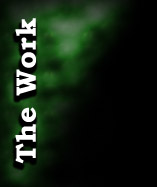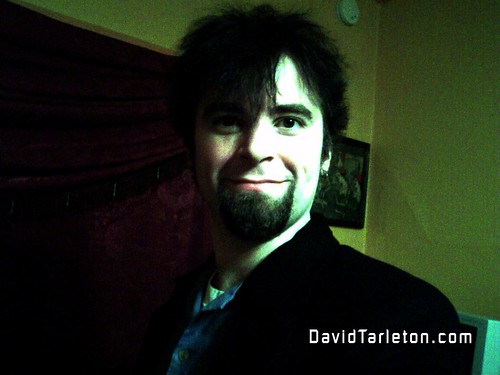Thoughts on Editing
When I say I'm "making" the film, it's like this: let's say I'm a carpenter, and I make chairs. "Production" (which is the part of the process usually featured in "making of" documentaries) is like going out into the woods, choosing which trees to chop down, and planing the wood and turning it into lumber.
It's about getting the raw materials and bringing them back.
What I do, in "post-production" is take those pieces of wood, drill through them, plane them, carve them out, paint and otherwise build the actual final piece.
In this metaphor, the actors or documentary subjects are the trees. The axe is the camera, etc.
If I was a sculptor, you could say that I am brought a marble slab, or several of them, and I'm the guy with the hammer and chistle, working on it every day.
I often work as "producer / editor" which usually means I'm self directing. These kinds of projects sometimes don't have a director, which means that I'm calling the shots as far as putting the show together, sometimes in collaboration with one to three other people, also working as producers. Or I'll work closely one-on-one with a Director or Producer, or I'll be given stuff and told to go make something out of it.
I always edit my own projects when I'm working as a director, which is how I got involved in editing in the first place.
Undergrad, I went to the University of Virginia, and graduated with "Interdisciplinary Studies." I had been in the honors program there, an "Echols Scholar," which allowed me to take 4 years of electives with no major requirement and no prerequisites for any class. I took a graduate level class on Ethics and Statecraft my first semester at school. I got an A-.
But mostly I took a lot of Drama Department classes. I guess I learned some things about dramatic storytelling and staging, but it seems to me now, in retrospect as a practicing professional, that the emphasis was too abstract and not focused enough on the practical realities of working professionally in the field. I think I learned a lot more during my time at New York University studying film, or as I was getting my MFA at the University of Southern California in Cinema-Television.
As an undergrad, I got frustrated by not being able to pick and choose the best performances out of actors, and not having a finished product you get to keep at the end of doing a play. A videotape of a performance is not the same as the experience of seeing a play live.
I directed a number of plays during college: Sweeney Todd, No Exit, The Indian Wants The Bronx -- to name a few. At the end of my time at Colonial Williamsburg, I directed a one-man show that ran for 6 or 7 years, starring Russ Lawson.
Directing "The Miss Firecracker Contest" reminded me again how hard it is for me to accept the Zen ephemeral quality to doing live theatre. You can't just put it in the DVD 10 years from now and show your kids.
So the desire to be able to capture the best takes of a performance and the desire to have a more permanent experience lead me to film making -- and that first desire is the desire to edit - to eliminate everything that isn't the best material.
That's what editing is, ultimately: getting rid of everything that isn't the final film. Finding the best bits and tossing out the others.
And playing the cut like music. A film is like a symphony, with different movements, different keys, tempos. Films have beats and rests, creshendos and decreshends.
For me, film editing and writing music are somehow similar.






 Email me.
Email me.



0 Comments:
Links to this post:
Create a Link
Post a Comment
<< Home